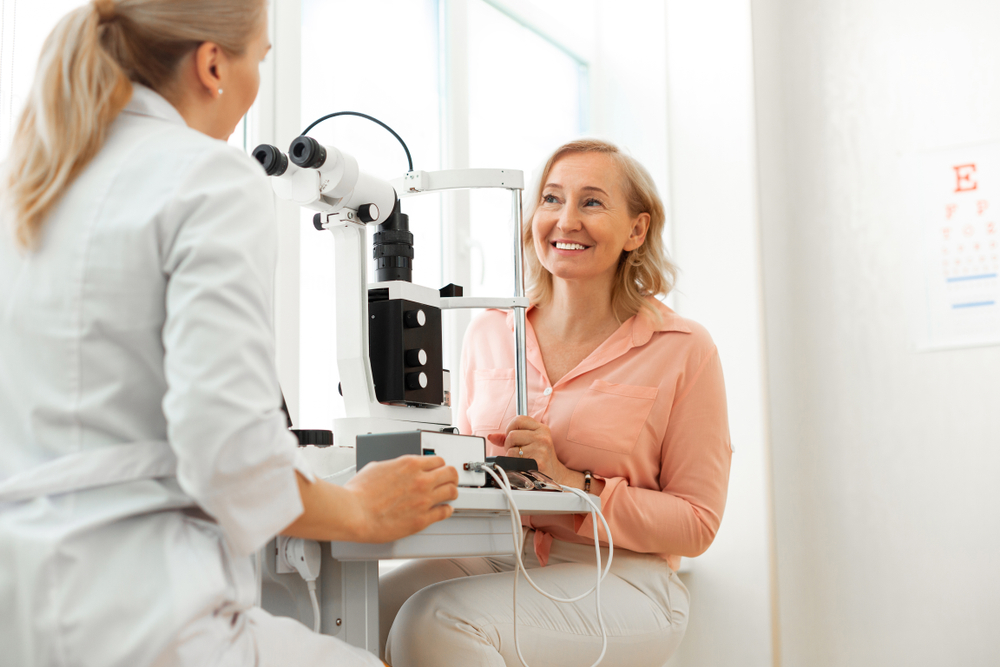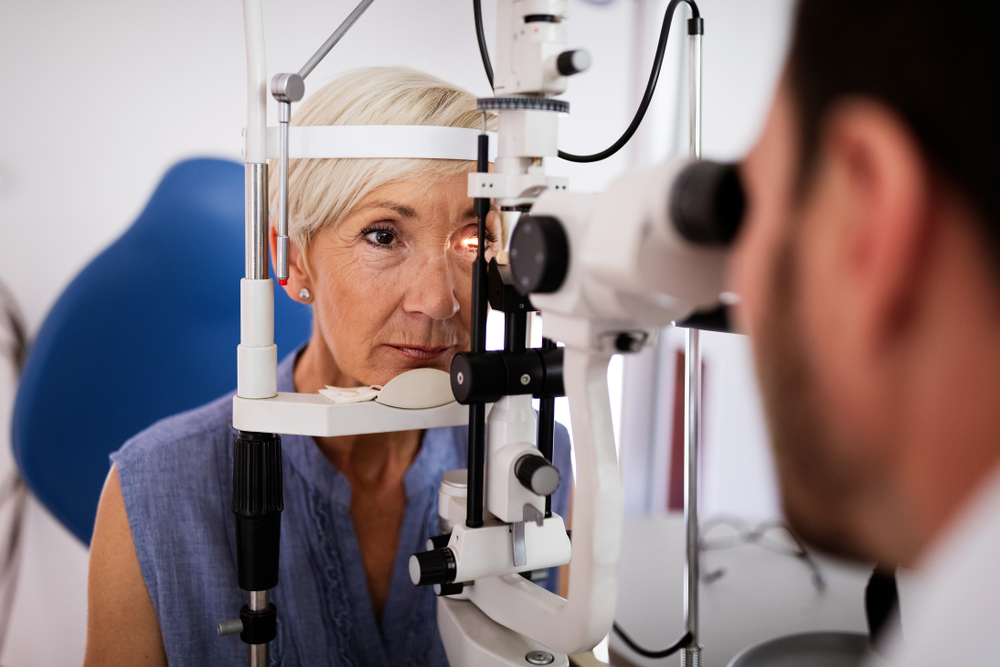
While eye exams are important at any age, especially if you have vision problems, they are even more essential as you get older. This is because age is one of the most significant factors that increases your risk of developing sight-threatening eye conditions.
Routine eye exams are the best way to identify and diagnose vision and eye health issues early on. With progressive conditions like glaucoma and age-related macular degeneration, early detection is essential to preventing vision loss, as once damage occurs, it is irreversible.
Keep reading to learn more about why attending frequent eye exams is essential as you age.
How Often Do You Need Eye Exams as You Age?

The recommendations for how often you need eye exams vary depending on your age and other risk factors. According to the American Academy of Ophthalmology, adults should attend at least one eye exam in their twenties and two in their thirties.
Once you reach the age of 40, you should start scheduling more frequent eye exams, as your risk for developing conditions like cataracts begins to increase at this time. Adults over 65 should attend eye exams at least once every two years, but you may need to attend more exams regardless of your age if you have any of the following risk factors for eye conditions:
- Family history of eye conditions
- Having conditions like diabetes or high blood pressure
- Being a smoker
- Past eye injuries or surgeries
- Long-term use of certain medications, like corticosteroids
Your eye doctor at Hayden Vision will recommend an eye exam schedule for you based on your age, symptoms, and risk factors.
What are Common Age-Related Eye Conditions?
It’s common to notice changes to your eyes and vision the older you get. These changes may begin in your 40s but often don’t significantly impact your vision until your 50s or 60s because many eye conditions tend to develop slowly over time.
Yearly eye exams ensure early detection of common age-related eye issues, such as cataracts, glaucoma, and macular degeneration. This can help preserve your vision and allow you to enjoy more of your life with clear vision and healthy eyes.
Common age-related eye conditions your eye doctor will look for at your eye exams include:
Cataracts

Cataracts are cloudy areas that form on the natural lens of the eye when the proteins within the lens begin to break down over time. With cataracts, you may feel like you’re seeing everything through a dirty window.
Other common cataract symptoms include:
- Double vision
- Yellowed or dulled vision
- Halos and glares
- Light sensitivity
- Poor night vision
- Needing frequent prescription changes
However, because they form slowly, you may not notice their effects on your vision for many years. Once your symptoms develop to the point where you’re struggling to complete everyday tasks like driving, reading, or cooking, your eye doctor will recommend cataract surgery.
It is a quick and easy procedure that involves removing the natural lens of the eye and replacing it with an intraocular lens (IOL) to restore your vision. Your eye doctor can monitor your cataract development through eye exams and help you decide the best time to undergo the procedure.
Glaucoma
Glaucoma is a serious eye condition that is the second leading cause of blindness in the world. If left untreated, it can cause permanent vision loss, meaning routine eye exams are vital as you age to detect and address glaucoma.
Glaucoma is a general term for a group of eye conditions caused by a build-up of pressure in the eye that damages the optic nerve. The most common type of glaucoma, open-angle, often doesn’t have symptoms until irreversible damage has already occurred.
With early detection through eye exams, prescription eye drops and eye surgeries like selective laser trabeculoplasty (SLT), iStent, and trabeculectomy can treat glaucoma and prevent vision loss.
Age-Related Macular Degeneration

Age-related macular degeneration impacts your central vision, making it difficult to see things directly in front of you. You’re most likely to develop this condition once you’re 50 years old or older.
It occurs when the macula, or the central part of the retina, starts to deteriorate over time. If left untreated, age-related macular degeneration can cause blindness of your central vision.
This condition is typically treated through vitamin regimens or anti-VEGF injections that help slow its progression. However, the best way to prevent vision loss from age-related macular degeneration is to attend frequent eye exams so your eye doctor can begin treatment as soon as possible.
Diabetic Retinopathy
Anyone with diabetes is at risk for diabetic retinopathy, with your risk increasing the older you get. This condition occurs when blood vessels in the eye leak fluid in the retina, which eventually causes the blood vessels to close and restrict blood flow.
If untreated, diabetic retinopathy causes vision loss or even blindness. Luckily, frequent eye exams can detect the signs early on.
When diagnosed through eye exams in its early stages, improved diabetes management can prevent vision loss. Your ophthalmologist may suggest injections or laser eye treatments at later stages of the condition.
Schedule an Eye Exam Today
The older you get, the more you’re at risk for vision loss due to eye conditions like cataracts, glaucoma, diabetic retinopathy, and age-related macular degeneration. Even if you are in good health and taking steps to protect your vision, attending frequent eye exams is essential to ensuring you don’t lose your vision to these common conditions.
Do you remember when you had your last eye exam? Prioritize your eye health as you age by scheduling an appointment at Hayden Vision in Evansville, IN, today!
